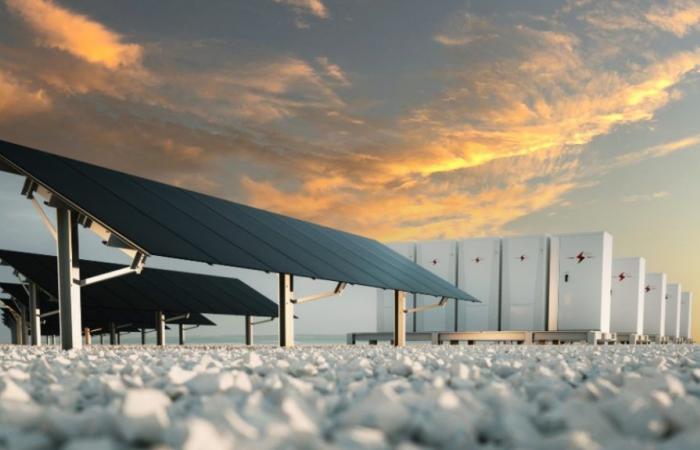Aurora Energy Research, the world’s leading provider of energy market analysis, has published its first European Renewable Energy Co-location Report, examining 12 European countries. Germany, Great Britain, Ireland’s I-SEM and Poland are the top four co-location markets within Europe.
Aurora predicts an additional 421 GW of intermittent renewable energy sources (RES) capacity by 2030, posing significant risks to RES assets, including cannibalization of capture prices, further curtailment, and rising imbalance costs . Germany, Greece, the Netherlands and Ireland’s I-SEM are the markets most affected by these factors, incentivizing the co-location of RES assets with battery storage systems as a form of mitigation.
Co-location in Germany offers attractive revenue accumulation opportunities, low network tariffs and mitigation of the significant risk of RES cannibalization, despite recent less attractive innovation auctions. Britain stands out due to favorable regulation, granting co-located assets access to multiple markets and offering faster grid access for shared RES projects.
As a result of the high curtailment risks of renewables and beneficial legislation facilitating faster access to the grid, Ireland’s I-SEM has a high rating for co-location of renewables and battery storage. Additionally, Poland has a strong subsidy environment with cable pooling and access to long-term capacity market contracts.
Regulatory disparities in EU markets
The report reveals that several European markets often lack co-location policy plans. In Germany, requirements imposed on battery assets as part of the innovation auction scheme drastically reduce commercial viability. Spain’s draft National Energy and Climate Plan (PNECP) aims to increase BESS targets to at least 2.5 GW by 2030, with significant government subsidies allocated for shared storage projects, but little capacity has been acquired through subsidies in recent years.
The five markets rated as the most favorable in terms of policy and regulation are Poland due to accessibility to long-term capacity market revenues and novel regulation on cable pooling, Hungary, which introduced mandatory co-location for solar assets PV above a certain size, Ireland I-SEM and Great Britain due to the variety of revenue streams available for projects and potential benefits in terms of grid access and curtailment risks.
France is also considered an attractive market for the co-location of solar PV and BESS assets, as co-located solar PV can participate in French Contracts for Difference (CfD) auctions, which have historically settled at low prices. of high exercise.
Markets to follow
Recent announcements in Spain regarding potential capital expenditure (CapEx) support for co-located batteries could offer a substantial boost to business cases. Ongoing discussions in the Netherlands over battery storage obligations and possible reductions in grid tariffs could also improve business cases and pipeline projects.
Rebecca McManus, Senior Research Associate at Aurora Energy Research, commented: “With intermittent renewables playing an increasingly important role in the European energy landscape and the recent adoption of batteries, shared projects will soon become an essential part of the developers’ work. However, it is difficult to navigate each asset type alone and managing the interaction of both asset classes and how to trade them together will continue to be an obstacle.”
Jannik Carl, Research Associate at Aurora Energy Research, added: “Market interest in the co-location of intermittent renewables and battery assets has increased across Europe, with Britain at the forefront. However, policy frameworks in many markets lag behind and often focus solely on individual aspects of co-located business models. To ensure successful projects in the coming years, it will be crucial to address all the complexity, including network integration and market access.”






